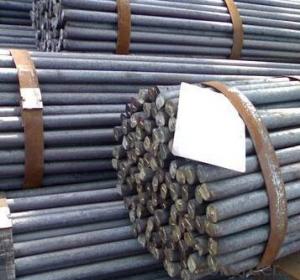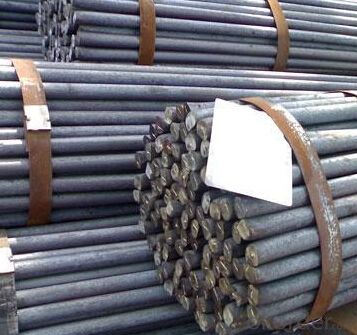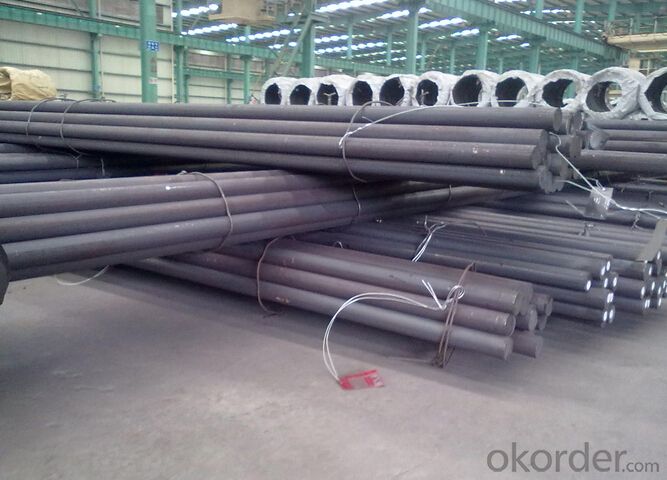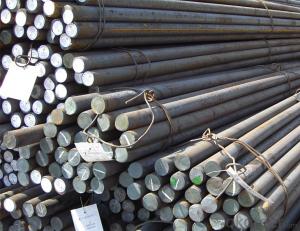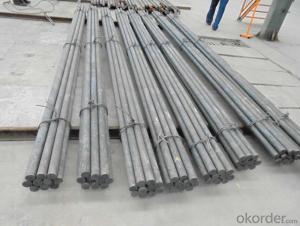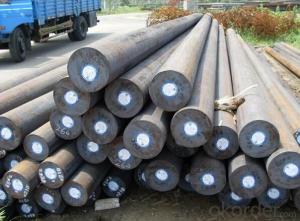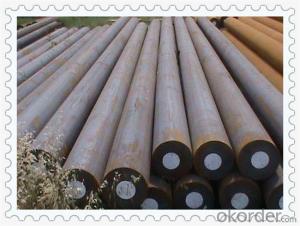Round Bar Reinforcing Steel Bars Q345 Special Steel
- Loading Port:
- China main port
- Payment Terms:
- TT OR LC
- Min Order Qty:
- 30 m.t.
- Supply Capability:
- 10000 m.t./month
OKorder Service Pledge
OKorder Financial Service
You Might Also Like
Specification
Main Product
Plastic Mould Steel
DIN 1.2311,1.2738,1.2083,1.2316 etc.
AISI P20,P20+Ni,420 etc.
JIS SUS420J2
Hot Work Steel
DIN 1.2344,1.2343,1.2367,1.2365,1.2581,1.2713 etc.
AISI H13,H11,H10,H21, etc.
JIS SKD61,SKD6,SKD5,SKT4 etc.
Cold Work Steel
DIN 1.2739, 1.2601, 1.2080, 1.2436, 1.2631, 1.263, 1.2510, 1.2327 etc.
AISI D2, D5, D3, D6, A8, A2, O1 etc.
JIS SKD10, SKD11, SKD1, SKS3 etc.
High Speed Steel
DIN 1.3343, 1.3243, 1.3247, 1.3355 etc.
AISI M2, M35, M42, T1 etc.
JIS SKH51, SKH35, SKH59, SKH2 etc.
Alloy Structural Steel
DIN 1.7035,1.6511,1.7220,1.7225 etc.
AISI 5140, 4340, 4135, 4140 etc.
JIS SCr440,SNCM439,SCM435,SCM440 etc.
Stainless & Carbon Steel or Others
DIN 1.4125,1.1191 etc
AISI 440C,1045, 1020 etc.
JIS SUS440C,S45C etc
Product show
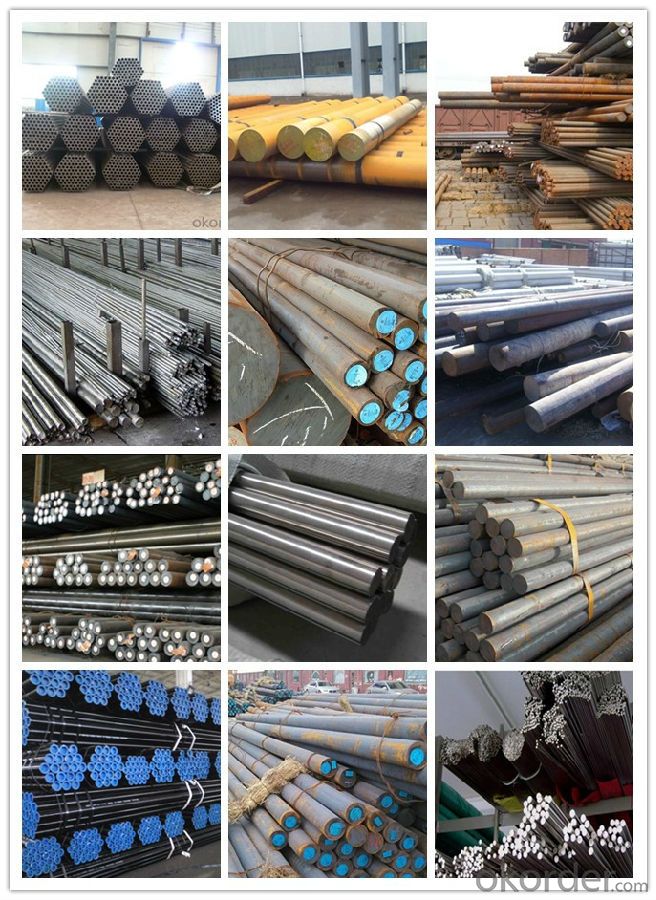
Workshop show
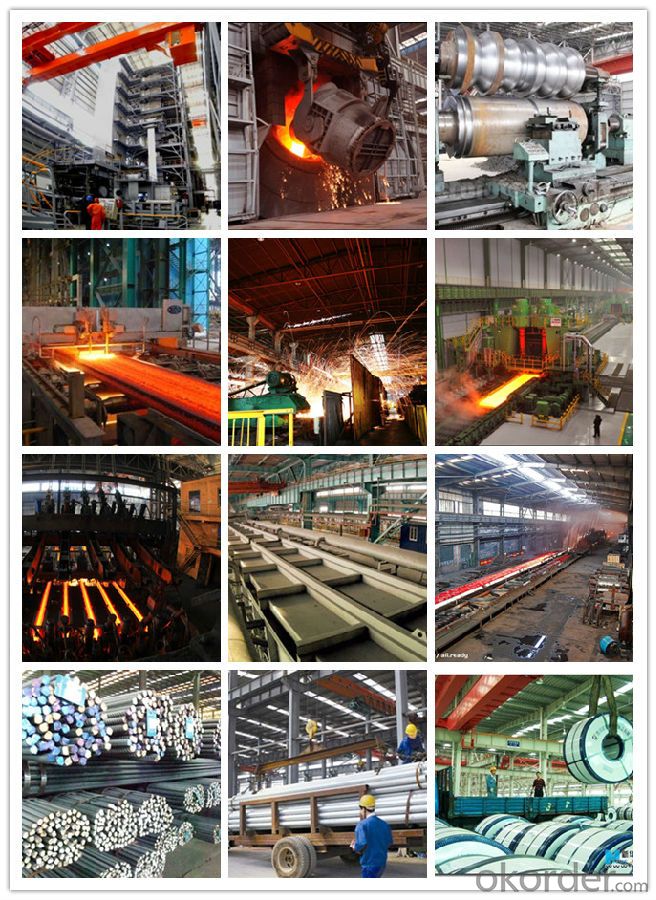
Shipping
1. FedEx/DHL/UPS/TNT for samples, Door-to-Door;
2. By Air or by Sea for batch goods, for FCL; Airport/ Port receiving;
3. Customers specifying freight forwarders or negotiable shipping methods!
Delivery Time: 3-7 days for samples; 5-25 days for batch goods.
Payment Terms
1.Payment: T/T, L/C, Western Union, MoneyGram,PayPal; 30% deposits; 70% balance before delivery.
2.MOQ: 1pcs
3.Warranty : 3 years
4.Package Informations: 1) EXPORT, In 20 feet (GW 25 ton) or 40 feet Container (GW 25 ton)
2)as customer's requirement
Why choose us?
(1) The leading exporter in China special steel industry.
(2) Large stocks for various sizes, fast delivery date.
(3) Good business relationship with China famous factories.
(4) More than 7 years steel exporting experience.
(5) Good after-sales service guarantee.
- Q: What are the different methods of surface texturing for special steel?
- Some of the different methods of surface texturing for special steel include shot blasting, etching, electrochemical etching, laser texturing, and milling. These methods are used to create various patterns, textures, or finishes on the surface of the steel, which can enhance its appearance, improve its performance, or provide better adhesion for coatings.
- Q: Can special steel be used in the automotive parts manufacturing industry?
- Yes, special steel can be used in the automotive parts manufacturing industry. Special steel is often used in the production of critical automotive components, such as engine parts, transmission systems, and suspension components, due to its high strength, durability, and resistance to wear and corrosion. Special steel alloys, such as stainless steel and alloy steel, offer superior mechanical properties and performance characteristics, making them ideal for manufacturing automotive parts that require high performance and reliability.
- Q: How does special steel contribute to the mining equipment industry?
- Special steel plays a significant role in the mining equipment industry by providing superior strength, durability, and resistance to harsh operating conditions. It is used in the manufacturing of various mining equipment components such as drill bits, crusher parts, conveyor belts, and buckets, enhancing their performance and longevity. Additionally, special steel enables the development of more advanced and efficient mining machinery, leading to increased productivity and safety in the mining sector.
- Q: What are the specific requirements for special steel used in the agricultural sector?
- Optimal performance and durability in the demanding conditions faced by the agricultural sector necessitate specific requirements for the special steel used. Key requirements for special steel in agriculture include: 1. To prevent premature deterioration and ensure a long service life, special steel used in this sector must have high resistance to corrosion, as agricultural equipment often encounters corrosive substances like fertilizers, pesticides, and animal waste. 2. Withstanding heavy loads, impacts, and vibrations during operation, special steel in agriculture must possess high tensile strength and toughness, thereby avoiding deformation or failure. 3. To maintain sharp cutting edges and prevent premature wear caused by abrasive environments with soil, rocks, and debris, special steel used in the agricultural sector should have excellent wear resistance. 4. Special steel in agriculture should have good machinability to enable easy fabrication, welding, and shaping into complex components with intricate shapes and profiles. 5. For agricultural processes involving high temperatures, such as heat treatment or exposure to hot gases, special steel used in these applications should have good heat resistance to retain its mechanical properties and structural integrity, even at elevated temperatures. 6. Balancing performance with cost is crucial for agricultural equipment manufacturers. Hence, special steel used in the agricultural sector should provide a cost-effective solution, offering desired properties at a competitive price. Meeting these specific requirements enables special steel in the agricultural sector to deliver reliable and efficient performance, contributing to the productivity and longevity of agricultural machinery and equipment.
- Q: Classification of special steel products
- Carbon steel, also called carbon steel, is an iron carbon alloy with a carbon content of less than 2% wc. Carbon steel, in addition to carbon, usually contains a small amount of silicon, manganese, sulfur and phosphorus.Carbon steels can be divided into three categories: carbon structural steel, carbon tool steel and free cutting structural steel by use. Carbon structural steel can be divided into two kinds of structural steel and machine building steel.
- Q: How does special steel contribute to the overall strength and durability of structures?
- Several factors contribute to the overall strength and durability of structures, and special steel is one such factor. Firstly, the manufacturing process of special steel involves incorporating specific alloying elements that enhance its mechanical properties. This leads to an increase in tensile strength and hardness, enabling the steel to withstand higher loads and pressures. Consequently, the structural integrity of buildings and infrastructures is ensured. Additionally, special steel is renowned for its remarkable resistance against corrosion. This is particularly significant for structures that are exposed to harsh environmental conditions or come into contact with corrosive substances. By preventing rust and degradation, special steel significantly prolongs the lifespan of structures. As a result, maintenance costs are reduced, and the need for frequent repairs or replacements is minimized. Furthermore, the unique properties of special steel enable the creation of streamlined and lightweight structures. Its high strength-to-weight ratio empowers architects and engineers to design structures with thinner sections and reduced material usage, all while maintaining the necessary strength. This not only saves costs but also reduces the environmental impact associated with construction. Moreover, special steel exhibits exceptional toughness and impact resistance. This makes it highly resistant to fractures or buckling when subjected to extreme loads or dynamic forces. This property is particularly crucial for structures that face seismic events, heavy vibrations, or impacts, as it guarantees the safety and stability of the building or infrastructure. In conclusion, special steel plays a critical role in enhancing the overall strength and durability of structures. Its unique mechanical properties, corrosion resistance, lightweight nature, and high toughness all contribute to the longevity, safety, and cost-effectiveness of buildings and infrastructures.
- Q: What are the different corrosion-resistant coatings for special steel?
- Various corrosion-resistant coatings are available for special steel, each possessing unique properties and advantages. Some commonly used coatings include: 1. Zinc Coating: Galvanizing and other zinc coatings are widely employed to safeguard special steel against corrosion. The zinc layer acts as a sacrificial barrier, preventing corrosive elements from coming into contact with the steel. 2. Epoxy Coating: Due to their exceptional adhesion, chemical resistance, and durability, epoxy coatings are a popular choice for corrosion protection. They create a robust barrier that shields special steel from moisture, chemicals, and other corrosive agents. 3. Polyurethane Coating: In harsh environments where special steel is exposed to extreme conditions, such as offshore or marine applications, polyurethane coatings offer exceptional resistance against abrasion, chemicals, and weathering. 4. Ceramic Coating: Ceramic coatings provide outstanding corrosion protection and high-temperature resistance. They are frequently used in industries like aerospace and automotive, where special steel must withstand extreme temperatures and corrosive environments. 5. Metal Coating: Nickel or chromium coatings are frequently applied to special steel to enhance its corrosion resistance. These coatings establish a protective layer that acts as a physical barrier, preventing corrosion. 6. Powder Coating: Powder coatings are electrostatically applied and then cured under heat, resulting in a hard and durable protective layer. They offer excellent corrosion resistance and can be customized in terms of color and texture. Choosing the appropriate corrosion-resistant coating for special steel is crucial and should be based on specific requirements and the environment it will be exposed to. Factors such as temperature, exposure to chemicals or moisture, and desired coating lifespan should all be considered when selecting the suitable coating.
- Q: How is special steel tested for quality control?
- Special steel is tested for quality control through various methods, such as mechanical testing, chemical analysis, and non-destructive testing. Mechanical testing involves assessing the steel's strength, hardness, toughness, and other mechanical properties through techniques like tensile, impact, and hardness testing. Chemical analysis is performed to ensure the steel meets the desired composition and impurity levels, utilizing techniques like spectrometry. Non-destructive testing methods, like ultrasonic, magnetic particle, and visual inspection, are used to detect any surface or internal defects in the steel. These rigorous testing procedures ensure that special steel meets the required quality standards before it is used in various applications.
- Q: How does special steel perform in heat treatment applications?
- Special steel is specifically designed to perform well in heat treatment applications. Unlike regular steel, special steel has been alloyed with specific elements to enhance its heat resistance and improve its mechanical properties. When subjected to heat treatment processes such as annealing, quenching, tempering, or hardening, special steel undergoes structural changes that result in improved strength, hardness, toughness, and wear resistance. The performance of special steel in heat treatment applications can be attributed to its unique alloying elements, such as chromium, molybdenum, nickel, and vanadium. These elements form various carbides, nitrides, or intermetallic compounds during heat treatment, which contribute to the overall improvement in the steel's properties. For example, chromium forms chromium carbides that increase hardness and corrosion resistance, while molybdenum and vanadium promote hardenability and wear resistance. Moreover, special steel exhibits excellent dimensional stability during heat treatment. It has a low tendency to warp or distort, ensuring that the final product maintains its desired shape and dimensions. This dimensional stability is particularly crucial for applications that require tight tolerances or intricate designs. Additionally, special steel offers consistent and reliable heat treatment results. Its composition and microstructure are carefully controlled, ensuring that it responds predictably to heat treatment processes. This allows manufacturers to achieve the desired mechanical properties consistently, reducing the risk of inconsistencies or failures in the final product. In summary, special steel performs exceptionally well in heat treatment applications. Its unique alloying elements, dimensional stability, and consistent heat treatment response make it an ideal choice for applications that require improved strength, hardness, toughness, and wear resistance. Whether it is for automotive components, tooling, or industrial machinery, special steel delivers reliable and enhanced performance after undergoing heat treatment processes.
- Q: What are the applications of special steel in the agriculture sector?
- Special steel has various applications in the agriculture sector. It is often used in the manufacturing of agricultural machinery and equipment such as tractors, plows, harvesters, and irrigation systems. The high strength and durability of special steel make it ideal for withstanding the demanding conditions and heavy loads typically encountered in agricultural operations. Additionally, certain types of special steel, such as stainless steel, are corrosion-resistant, which is crucial for equipment exposed to moisture and chemicals in the farming environment.
Send your message to us
Round Bar Reinforcing Steel Bars Q345 Special Steel
- Loading Port:
- China main port
- Payment Terms:
- TT OR LC
- Min Order Qty:
- 30 m.t.
- Supply Capability:
- 10000 m.t./month
OKorder Service Pledge
OKorder Financial Service
Similar products
Hot products
Hot Searches
Related keywords
